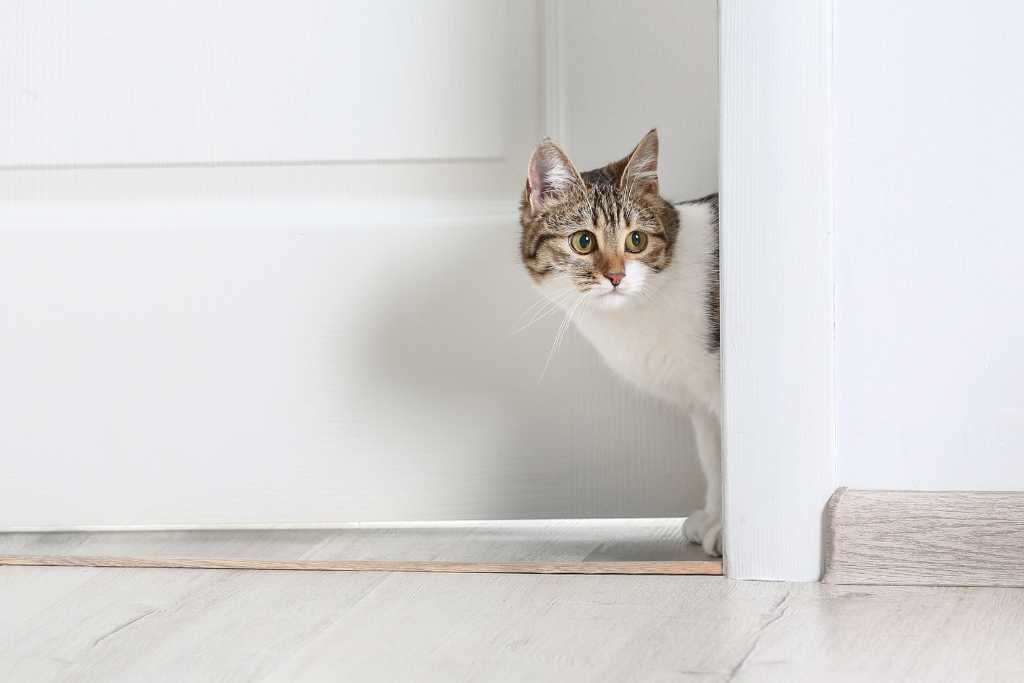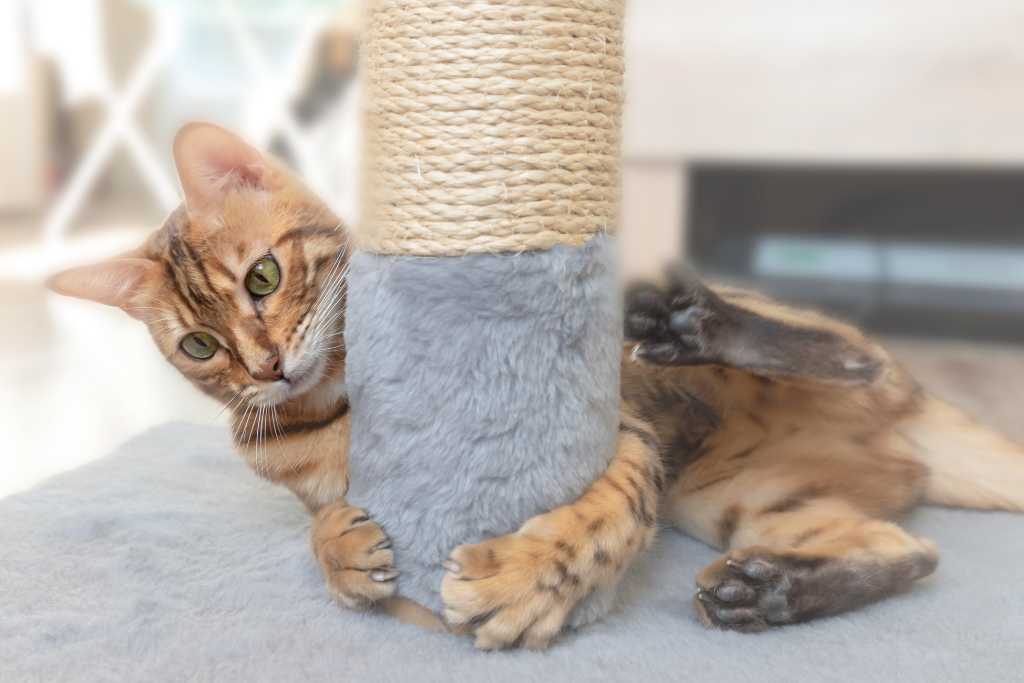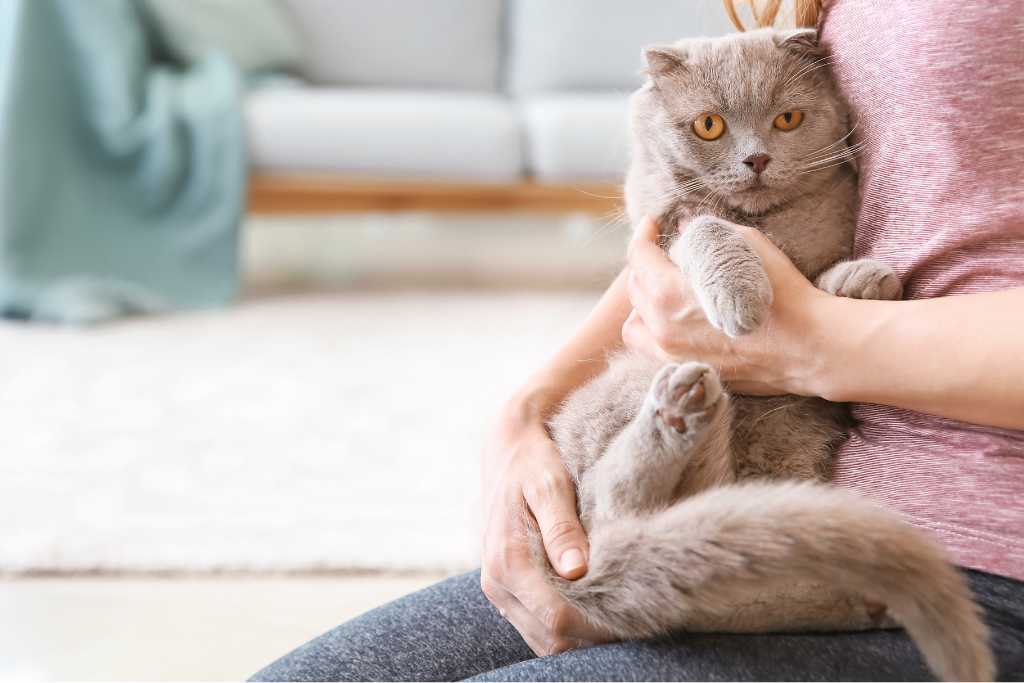AWAY FROM FREE SHIPPING
NICE. SHIPPING IS ON US!
AWAY FROM FREE GIFT
CHOOSE A FREE GIFT DURING CHECKOUT!
YOUR CART IS EMPTY. SHOP NOW.
When you bring home a new cat, you can expect that she will need time to adjust and acclimate to her new surroundings. The transition to a new environment can be stressful for your new pet. The first 30 days are very important for setting up your new family member for success. To ensure a smooth adjustment and create a strong bond with your furry companion, here are some essential cat care tips to transitioning your cat into your home. Let’s get your relationship with your new cat started off right.

Imagine arriving in a new place filled with unknown smells and sounds. It can be overwhelming. To ease your new cat's anxiety, designate a quiet, safe, and comfortable space in your home where they can gradually acclimate to their surroundings. This "safe room" should contain all the essentials: a litter box, food, water, toys, a scratching post, and a cosy bed. Allow them to explore this area at their own pace before gradually introducing them to the rest of your home.
Once your cat starts showing signs of comfort in the safe room, it's time to gradually introduce them to the rest of the house. Open the door and let them explore the adjacent rooms. Supervise their interactions with any other pets you may have, and ensure these meetings are calm and positive. Remember, patience is key during this process, as every cat adjusts to change at their own pace.
Soon after adopting your cat, schedule a visit to the veterinarian for a thorough health check-up. The vet will ensure your new feline companion is in good health and will update vaccinations if needed. This is also an excellent opportunity to discuss any concerns you might have and to learn about preventative measures for common feline health issues.

Cats thrive on routine, as it provides them with a sense of security and predictability. Set a consistent daily schedule for feeding, playtime, and cuddle sessions. By doing so, your cat will quickly learn what to expect and feel more comfortable in their new environment.
Proper nutrition is essential for your cat's overall health and well-being. The focus should be on feeding high-quality food with meat as the primary ingredient. Consult with your veterinarian to determine the best diet for your newly adopted cat, taking into consideration their age, breed, and any specific dietary requirements. If you need to switch their food, do it gradually to avoid stomach upset. Always provide fresh, clean water and monitor their eating habits to ensure they are eating well and maintaining a healthy weight.
Cats are curious and intelligent creatures that require mental and physical stimulation. Enrich their living space with interactive toys, scratching posts, and climbing structures. Rotate toys regularly to keep their interest piqued, and engage in interactive play to strengthen the bond between you and your feline friend. Interactive play sessions offer dedicated one-on-one time with your cat. This helps create a sense of companionship, affection, and mutual enjoyment, all of which contribute to building a better bond. It’s important to note that when you are playing with your cat, always be thinking about how you can mimic prey behaviour so your cat can act like a predator. Certain toys like the laser toy, wand toy and throw toy with feathers are great for simulating prey behaviour and letting your cat stalk and pounce like a predator.

Scratching is a natural behaviour for cats. It helps them stretch, mark their territory, and maintain healthy claws. To protect your furniture, provide appropriate scratching posts or pads in various locations around your home. Check out this Honey Care Cat Scratching Post that is made from heavy duty, non-toxic and 100% recyclable corrugated cardboard. The premium scratching texture closely mimics a tree bark, making it highly irresistible for cats! Sprinkle catnip flakes or use positive reinforcement to encourage your cat to use the scratching posts or pads.
Regular grooming is essential for your cat's health, comfort, and appearance. Brush your cat's fur regularly to minimise shedding and hairballs. We love the push-release button of this PETKIT Grooming Brush. The push-to-release button makes it super easy to remove cat’s hair from the brush quickly. Keep their litter box clean by scooping it daily and changing the litter regularly. Use a litter trapping mat to reduce litter scatter and tracking from litter pans. Clean surroundings promote good hygiene and reduce the risk of potential health issues.
Understanding your cat's body language is vital for effective communication and ensuring their well-being. Learn to recognize signs of stress, contentment, playfulness, and discomfort. A relaxed and happy cat will have a calm demeanour, purring, and slow blinking, while a stressed cat may have dilated pupils, a puffed-up tail, and flattened ears.
Despite your best efforts, some cats may experience significant stress or behavioural issues after adoption. Signs of stress can include excessive hiding, aggression, or litter box problems. If you notice any concerning behaviours, don't hesitate to seek professional help from a veterinarian. They can offer valuable insights and guidance to address these challenges effectively.

Remember, every cat has a unique personality, and some may be more timid than others. Be patient and avoid forcing interactions. Let your cat come to you on their terms, especially if they seem shy or nervous. Providing the right post-adoption care will help them feel loved, secure, and happy in their forever home. By creating a nurturing environment, understanding their needs, and being patient, you'll forge a deep and lasting bond with your feline companion that will enrich both of your lives for years to come.

Comments will be approved before showing up.



